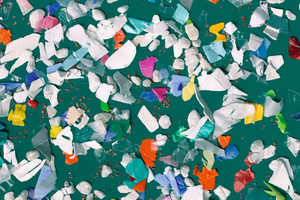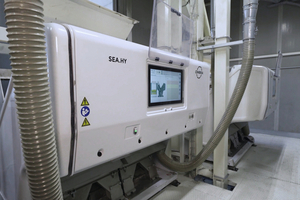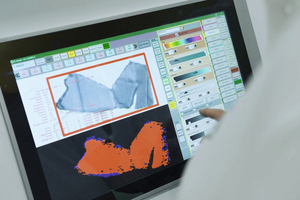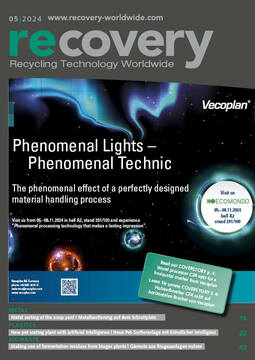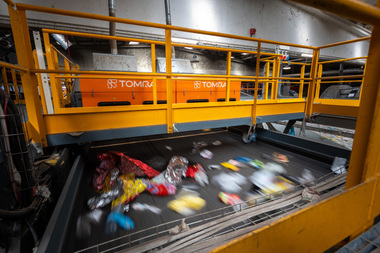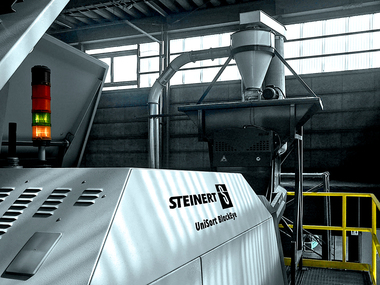Plastic recycling with optical sorting
The potential of increasing the sorting of plastic waste is enormous with a yearly production of about 400 million tons of plastic waste worldwide and only 10 % of the plastic waste being recycled. The good news is that we already have the technology needed for precise and efficient sorting of post-consumer plastics, which is crucial for recycling the plastic.
Cimbria’s optical sorters and turnkey solutions offer highly advanced sorting of plastics with an extremely precise material separation to enable a purification of up to 99.99 % of the sorted plastic. With over 50 years of experience in the development and application of high-tech optical sorting solutions, Cimbria is one of the leading actors in the industry for plastic sorting. A market which is rapidly growing across the world and an important agenda for governments and international organizations such as the UN Environment Programme (UNEP). In 2023, UNEP published a roadmap that outlines solutions to reduce global plastic pollution by 80 % in 2040, if countries and companies make deep policy and market shifts using existing technologies.
“It is increasingly important to recycle post-consumer materials such as plastic, and luckily, we do have the right technology for it already. An important prerequisite to recycle plastics is the separation of color and polymers in flakes and granules. This ensures the highest quality of the selected materials, so it can be reused in the best way,” explains Michela Pelliconi, Head of Sales Optical Sorting, Rest of World at Cimbria.
Currently, the recycling sector accounts for about one-third of Cimbria’s turnover and is for the most part linked to the recycling of plastic. Therefore, the development of technology and software used in the optical sorters is an important field within Cimbria’s business. “About 50 % of the performance of an optical sorter is determined by the software. Our software is developed in-house and has always been our flagship. With interconnected equipment and advanced data analyses we can provide actionable results, insights, and recommendations that help our customers to make informed decisions which can improve the productivity of their plants,” says Lorenzo Tinti, Head of Sales Optical Sorting, Italy at Cimbria.
The plastic recycling industry in Italy is a pioneer due to legislations leading to high standards regarding recycling of plastics. Two leading Italian companies within plastic recycling have recently installed optical sorters from Cimbria in their plants. The Plastisavio plant in Bertinoro in Northern Italy sorts materials received through the WEEE circuit, which refers to the recycling and disposal of electrical and electronic products such as refrigerators at the end of their life cycle. The dry recycling process of polystyrene at this plant is handled by the combination of the Delta Screen Cleaner and the SEA.HY Optical Sorter from Cimbria.
“The plastic recycling world is very interested in optical sorting technology as it allows for the recovery of materials, which were unthinkable to recycle until a few years ago. It is a rapidly growing sector, and we think that Cimbria plays a crucial role in this market thanks to the high technology of Cimbria’s optical sorters,” says Pier Paolo Rossi, General Manager at Plastisavio S.p.A.
Forever Plast S.p.A., also situated in Northern Italy, has recently launched a project for the sorting and purification process of HDPE and PP flakes. The new optical sorting line includes a combination of seven Cimbria SEA Optical Sorters to efficiently select both polymers and colors in the same processing line. In the new plant, HDPE and PP flakes in all types of color can be sorted without producing any waste. Cimbria worked closely with the customer in defining the best design of the sorting process to optimize the product flow and the dedicated performance of the machines.
“The market for plastic sorting is rapidly growing with a constant flow of new plants. Europe and especially the Nordic countries are growing with Germany, Italy and France being European first movers in the field. If we improve the collecting of post-consumer plastic waste, we have the technology needed to sort the plastic and thereby increase the reuse of plastic distinctively,” says Michela Pelliconi. Turnkey solutions from Cimbria combined with their many years of experience play a crucial role in creating a more sustainable future with even more recycling of other industrial materials such as glass, metals, and minerals.

